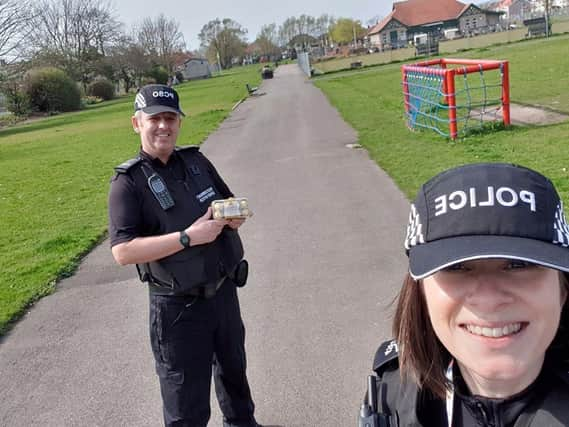When is it reasonable to go out during lockdown? Lancaster and Morecambe residents raise 'false alarms' about flouting of rules


The vast majority of people in the Lancaster district followed government advice on staying at home and social distancing when out and about over the Easter weekend, according to Lancashire Police.
There were no fixed penalty notices issued in Lancaster and Morecambe over the weekend, although police issued plenty of advice.
Advertisement
Hide AdAdvertisement
Hide AdSergeant Lindsay Brown, Partnerships Officer for Lancaster & Morecambe said that Easter weekend had been "good overall".


He said: "The vast majority of people have been adhering to the advice on what would normally have been a very busy weekend in the district.
"We have had an increased number of calls from people reporting alleged breaches of the guidance but once investigated most were found to be false alarms with good intentions or the individuals responded well to police advice on arrival."
Officers said they also received gifts from members of the public while out on patrol.
Advertisement
Hide AdAdvertisement
Hide AdRegulation 6 of the The Health Protection (Coronavirus, Restrictions) (England) Regulations 2020 states no person may leave the place where they live without a reasonable excuse.
The National Police Chief's Council for England has issued guidance to officers about what is "likely to be reasonable" or not.
Likely to be reasonable:
Buying several days’ worth of food, including luxury items and alcohol.
Buying a small amount of a staple item or necessity (eg, a newspaper, pet food, a loaf of bread or pint of milk).
Collecting surplus basic food items from a friend.
Advertisement
Hide AdAdvertisement
Hide AdThere is no need for all a person’s shopping to be basic food supplies; the purchase of snacks and luxuries is still permitted.
In general terms, a person has a reasonable excuse to visit the shops which remain open to customers under the Regulations.
If a person is already out of the address with good reason, then it would not be proportionate to prevent the person from buying non-essential items.
Food could include hot food from takeaways.
‘Obtain’ includes purchasing, but could include collecting or sharing items, provided this is genuine.
Likely to be reasonable:
Advertisement
Hide AdAdvertisement
Hide AdBuying tools and supplies to repair a fence panel damaged in recent bad weather.
Not likely to be reasonable:
Buying paint and brushes, simply to redecorate a kitchen.
Likely to be reasonable:
Going for a run or cycle or practicing yoga.
Walking in the countryside or in cities.
Attending an allotment.
Driving to countryside and walking (where far more time is spent walking than driving). EDIT: People are reminded that they should stick to public footpaths, steer clear of livestock, and consider farmers when opening and closing gates.
Stopping to rest or to eat lunch while on a long walk.
Exercising more than once per day - the only relevant consideration is whether repeated exercise on the same day can be considered a ‘reasonable excuse’ for leaving home.
Not likely to be reasonable:
Driving for a prolonged period with only brief exercise.
A short walk to a park bench, when the person remains seated for a much longer period.
Likely to be reasonable:
Advertisement
Hide AdAdvertisement
Hide AdA key worker or other essential worker travelling to work where it is not reasonably possible to work from home.
A non-key worker or non-essential key worker travelling to work where it is not reasonably possible to work from home.
A person delivering food packages to vulnerable people.
Not likely to be reasonable:
A person who can work from home choosing to work in a local park.
A person knocking on doors offering to do cash-in-hand work.
Likely to be reasonable:
Advertisement
Hide AdAdvertisement
Hide AdMoving to a friend’s address for several days to allow a ‘cooling-off’ following arguments at home.
Not likely to be reasonable:
Visiting a friend in their address or meeting in public to socialise.
The guidance also states that there is no requirement to be a key worker or essential worker in order to travel to work.
Anyone can travel to work if it is not reasonably possible to work from home.
Advertisement
Hide AdAdvertisement
Hide AdA request from an employer to attend the work place should be sufficient.
But there is no requirement for the person to have any written proof of a need to go to work or volunteering.
Police should not ask for ID documents or any other kind of document.
There is no requirement for volunteers to work for a registered organisation or charity. There is no requirement for the volunteering to be related to COVID-19.
Comment Guidelines
National World encourages reader discussion on our stories. User feedback, insights and back-and-forth exchanges add a rich layer of context to reporting. Please review our Community Guidelines before commenting.